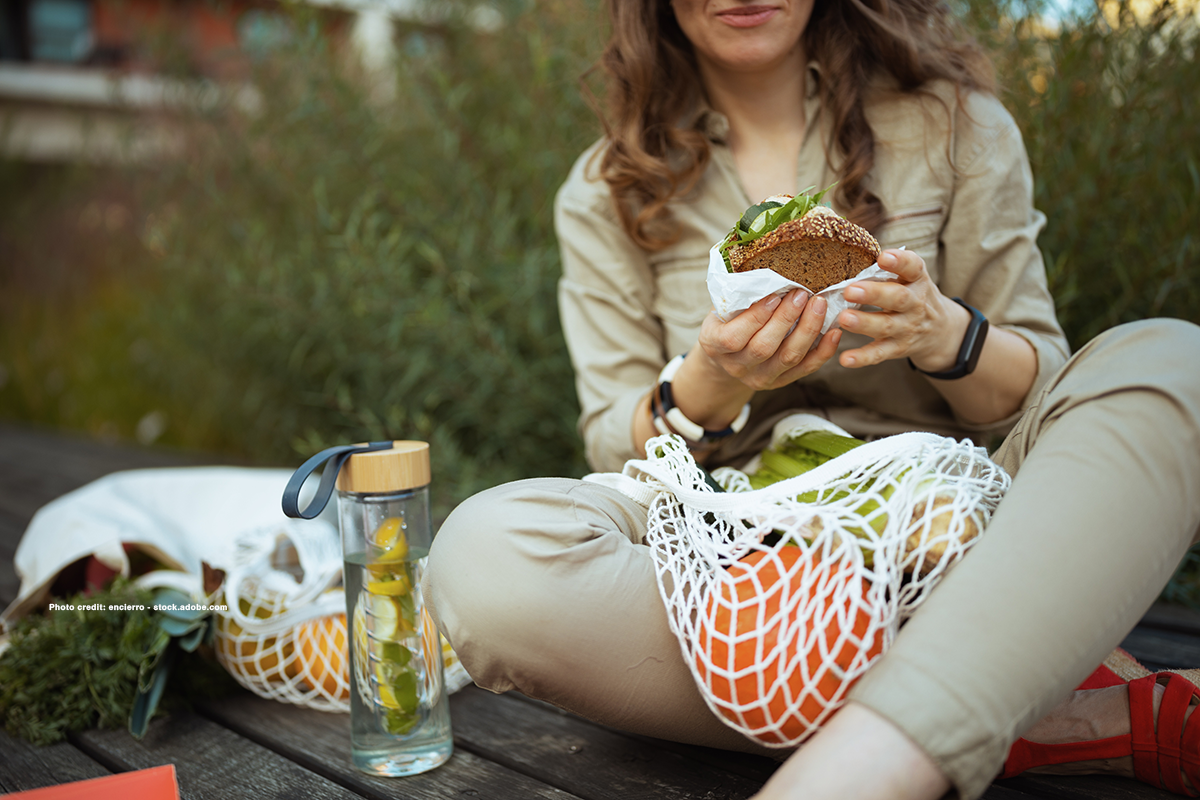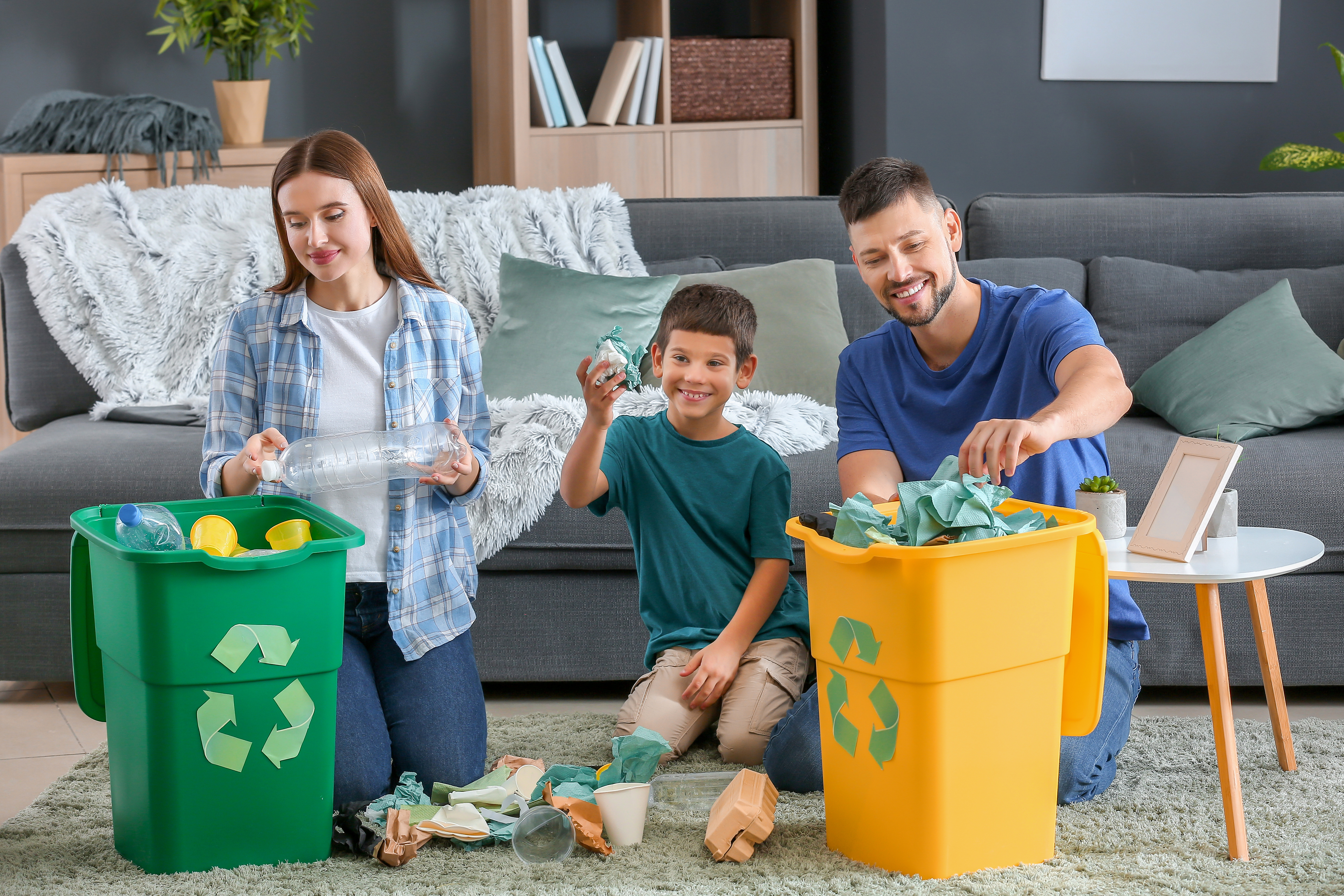If you’re pumped about the New Year, you’re probably thinking about some positive changes you’d like to make over the next twelve months. When setting goals for 2023, consider adding a resolution that doesn’t help just you, but Mother Earth as well! Need some help figuring out how to get started toward a more sustainable lifestyle? We’ve put together a list of realistic and low-cost, eco-friendly* ideas that you can commit to and successfully achieve in no time. Best of all, taking these steps can add up to big savings. We’ve also curated a special collection of sustainable-focused items available on the Wish app to help you along with your green journey.
*See disclaimer below.
1. Reduce Vampire Power*We hate to be the ones to tell you this but if you own electronics, then you’ve got some vampire power in your home. No, this doesn’t mean your devices are coming to life and turning into mythical creatures in the middle of the night. Vampire power (also known as phantom power) may sound a little scary, but it actually refers to appliances in your home that are in standby mode and drain power even when they’re turned off. Examples include microwaves, lamps, televisions, printers, and coffee makers. It’s estimated that vampire power contributes about 1% of the world's carbon dioxide emissions. In addition to draining power, it’s also may be draining your wallet. For example, in the U.S. it’s estimated households could save $165 extra in electricity bills a year and in the U.K. it’s estimated that switching off these electronics could save £147 per household.
So, how can you slay these energy vampires? Unplug devices when not in use, but also consider using power strips. This will help you consolidate multiple devices and turn them all off at the same time with the simple click of a button. It’s so easy and saves you money!
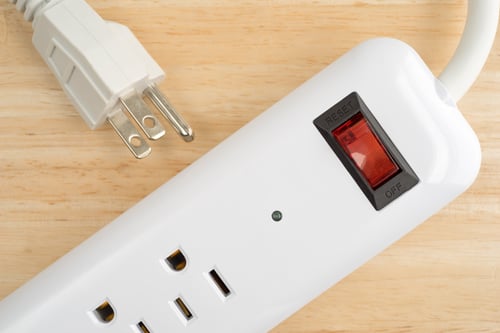 Photo credit: Bert Folsom - stock.adobe.com
Photo credit: Bert Folsom - stock.adobe.com
*Virtually all products impact the environment. For details on the benefits of using power strips to conserve energy, go to energy.gov.
2. Invest in Reusables*
Perhaps one of the easiest eco-friendly* decisions you can make is to be more mindful of your usage of single-use plastics. Globally, less than 10% of plastic waste is recycled and it's estimated that 75 to 199 million tons of it are in our oceans. Here are a few ideas to consider.
- Running errands that make take a while? Be sure to take along a water bottle with your favorite beverage to save money and avoid buying a drink housed in plastic packaging.
- Grabbing something to eat? Bring your own portable cutlery set so you can decline plastic ones.
- Heading out to the grocery store? Don’t forget to bring your reusable produce bags and grocery totes.
Need to take some food on the go? Use reusable food storage bags instead of plastic ones.
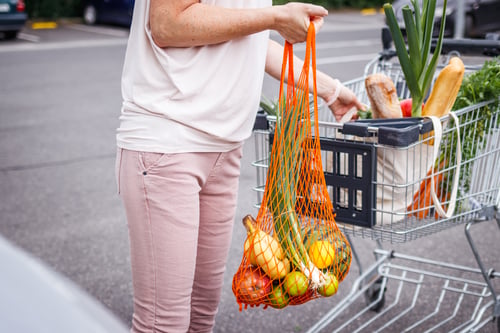 Photo credit: encierro - stock.adobe.com
Photo credit: encierro - stock.adobe.com
*Virtually all products impact the environment. For details on the benefits of using recycled materials and less plastic, go to unep.org.
3. Conserve water*
Treating, pumping, and heating water uses energy so water-saving techniques can help conserve fuel resources and help reduce air pollution. Investing in low-flow faucet aerators and showerheads around your home will not only help you use water more efficiently, but it may also cut down on your water bill. Other tips include making sure the dishwasher is full before starting it and turning off the faucet while brushing your teeth. And if you do need to run water to warm it up, collect the cold water for other uses such as watering plants or mopping.
*Virtually all products impact the environment. For details on the benefits of water conservation, go to energystar.gov.
4. Waste less food*
Globally, it’s estimated that 1.6 tonnes of food are wasted every year. Food waste that ends up in landfills produces methane, a powerful greenhouse gas. Make sure to only purchase what you can consume, but if you do need to buy excess, use a vacuum sealer to keep food fresher and longer. You can even seal leftovers for use at a later time. Most vegetables need to be blanched before seeling so use this handy guide from The National Center for Home Food Preservation for safety guidelines. For fruits and veggies that start to go bad, consider getting a composting bin to create nutrient-rich matter to help plants grow, and research curbside composting programs in your area. Home composting may be able to divert up to 150 kg of food waste produced by households every year.
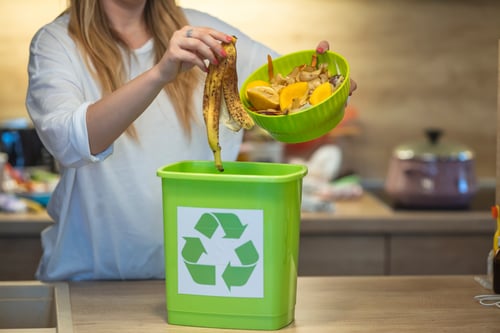 Photo credit: Dragana Gordic - stock.adobe.com
Photo credit: Dragana Gordic - stock.adobe.com
*Virtually all products impact the environment. For details on the benefits of composting and food preservation, go to epa.gov.
5. Choose solar power options*
In contrast to fossil-fuel-generated electricity, solar energy uses sunlight to create power. Plus, it’s can help reduce your electricity bill.
-
Opt for outdoor solar lights for walkways, yards, porches, and more. You can also use solar string lights to create a warm ambiance in your backyard.
-
When your phone battery is low, use a solar-powered battery bank, instead of reaching for a power cable. Plus, you can take it with you anywhere without having to worry about finding an outlet.
-
A solar generator is a great tool to have on hand to charge electronic products without using electricity.
*Virtually all products impact the environment. For details on the benefits of solar-powered products, go to energy.gov.
The takeaway
These actions may seem small, but by making some of these intentional choices you’ll be doing the environment a big favor. For every step you take towards a more sustainable lifestyle in 2023, give yourself a pat on the back for your achievement throughout the year.
Need some ideas for sustainable swaps that may save you money? Check out this article.
Don't forget to visit our special collection of sustainable-focused items available on the Wish app.
|
Disclaimer: The terms “sustainable,” “eco-friendly,” and similar general environmental claims, refer to consumer practices or products sold by merchants on the Wish platform that are intended to reduce environmental impact by way of energy and water conservation, reduction of single-use plastics, promotion of recycled materials, as well as tips for handling food waste and incorporating solar energy.
|
